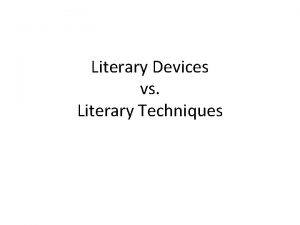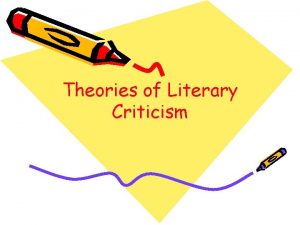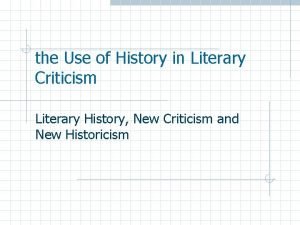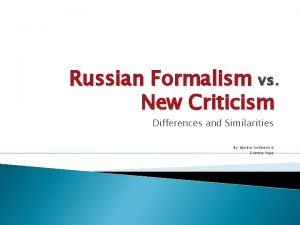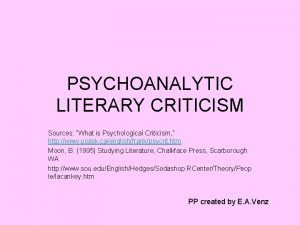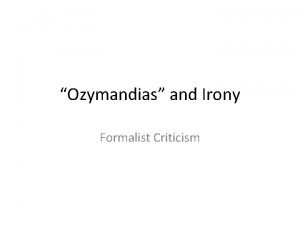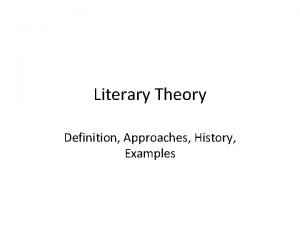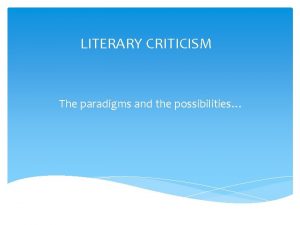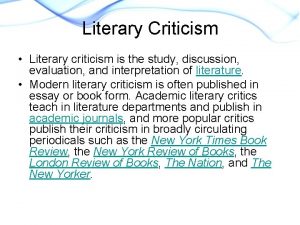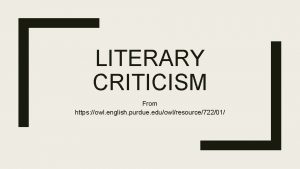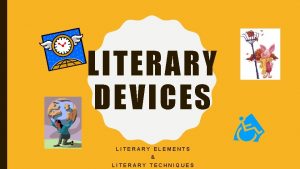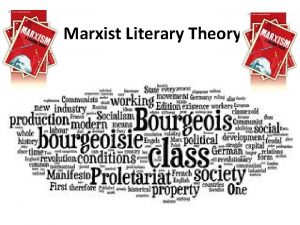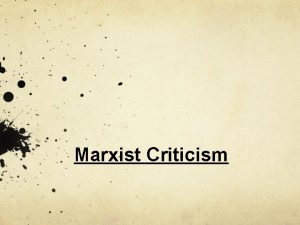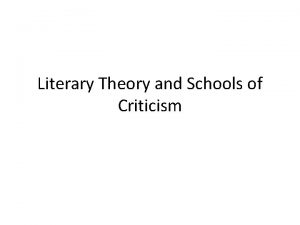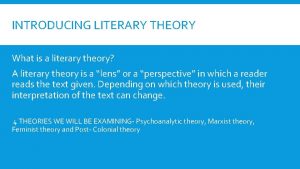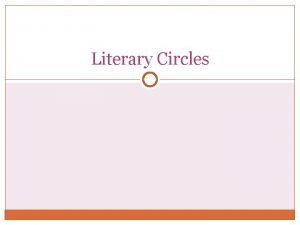Literary Theory What is Literary Theory Literary theory










- Slides: 10

Literary Theory

What is Literary Theory? ❖ Literary theory is a description of the underlying ideas, one might say the lens, through which we attempt to understand literature.

Contexts ❖ Literary theory offers varying approaches for understanding the role of historical context in interpretation as well as the relevance of linguistic and unconscious elements of the text. ❖ Literary theory in recent years has sought to explain the degree to which the text is more the product of a culture and in turn how those texts help to create the culture.

Different Names for the Same Thing ❖ “Literary theory” is sometimes called “critical theory, ” or “cultural theory” ❖ Literary Theory encompasses: ❖ Internal analysis of a text – the language used in a text ❖ External Knowledge – the social/political/cultural situation of the author

Modern Literary Theory ❖ Gradually emerged in the 19 th century ❖ Friedrich Nietzsche: facts are not facts until they have been interpreted. ❖ Humans create meaning in the world based on their sensory experience

20 th Century Literary Theory ❖ Marxism ❖ Marxist approaches to literature require an understanding of the economic and social bases of culture. ❖ Emphasizes the role of class and ideology as they reflect, promote, and even challenge the prevailing social order. ❖ Themes: inequality, power imbalance, hierarchy, rags to riches, American Dream

th 20 Century Theory ❖ Feminism ❖ the framework that includes all social and cultural formations as they pertain to the role of women in history ❖ Concerned with, “the ways in which literature reinforce or undermine the economic, political, social and psychological oppression of women ❖ Themes: woman as other, women are oppressed, patriarchal ideology, culture and gender

th 20 Century Theory ❖ Post-Colonialism ❖ Concerned with literature produced by colonial powers and works ❖ Questions the role of the western literary canon and western history as dominant forms of knowledge making ❖ Themes: power, economics, politics, religion, culture.

20 th Century Literary Theory ❖ Modernism ❖ One of the most visible changes of this period was the adoption of new technologies into daily life of ordinary people. Electricity, the telephone, the radio, the automobile—and the need to work with them, repair them and live with them—created social change ❖ Themes and Content: ❖ Alienation, Loss, Despair, the individual is more important than the social, the inward is more important than the outward, the unconscious is more important than the self-conscious, Marxism, Feminism ❖ Existentialism – What is important is that we exist; our existence has no meaning except that we create meaning for ourselves.

❖ Modernism is pessimistic (“We’re all alone in this world!”) ❖ Modernity must, in order to emerge, annihilate the past. Problematically, modernity must annihilate itself the very moment it is actualized, as the moment it emerges, it becomes a part of the past. It celebrates the endless cycle of destruction.
